Sustainable Technology and Energy
Institute
Mission of the Institute
The mission of the Institute is to help bring about greater
harmony between the natural world in which we live and the technology and
energy systems on which we depend -- hence the name "Sustainable Technology
and Energy." Both of these components are essential to our quality
of life. Modern technology has brought us many benefits. When
the system is working at its best, we can depend on medical care that will
protect us from many diseases and injuries; on a reliable supply of food
and food products; and on an economic system which allows us to earn a
living in a limited work week and still have leisure time left. But
in order to be considered a permanent success, this system must "live within
its environmental means": from generation to generation it must leave the
environment in a condition as good as or better than the one it received.
That's very different from the path we are currently on: ever expanding
the technology/energy side of the equation (at least for the wealthy portion
of the human population), but continually degrading the natural environment
in the process.
Q: How does this mission fit in with what is already being done for
the environment?
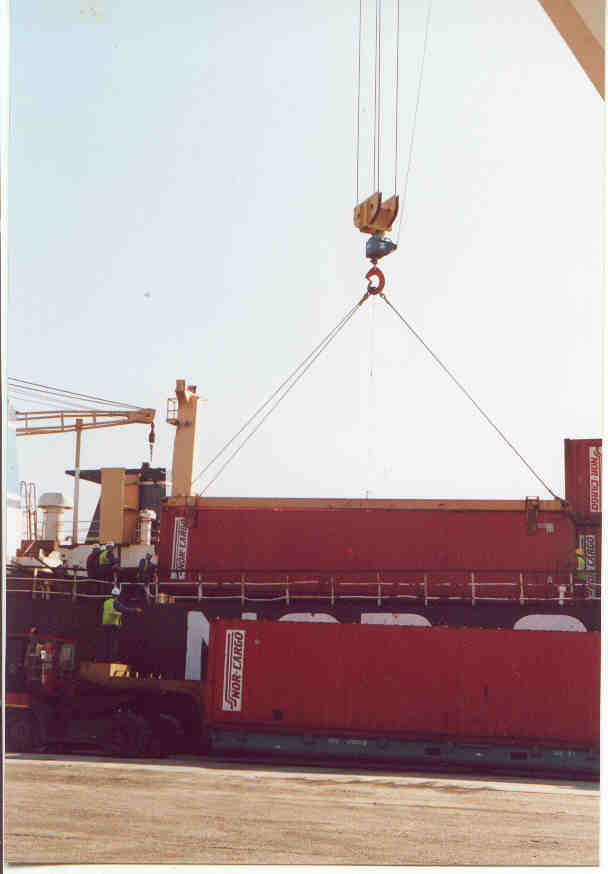 The Institute
sees "Sustainable-Technology-Energy" as the key remaining component in
the campaign to save the global natural environment. We have already
created a movement to protect wildlife habitat and other wild lands; we
have created a legal framework for enacting and enforcing environmental
laws, including a framework for international cooperation; and we have
developed a range of end-of-pipe technologies for containing and controlling
pollution. Without a fundamental shift in how our technology
in its essence interacts with nature, though, these other measures will
not be able to "turn the corner" on environmental degradation. They
will be continually in retreat, cleaning up one mess at the same time that
another four or five are created. It is especially important to understand
the difference between end-of-pipe technology and sustainable technology:
sustainable means more than catching pollution before it escapes, it means
using mainly renewable inputs (sunlight, wind, plants and trees, etc) and
producing only outputs that can be integrated back into nature, or used
in another technology.
The Institute
sees "Sustainable-Technology-Energy" as the key remaining component in
the campaign to save the global natural environment. We have already
created a movement to protect wildlife habitat and other wild lands; we
have created a legal framework for enacting and enforcing environmental
laws, including a framework for international cooperation; and we have
developed a range of end-of-pipe technologies for containing and controlling
pollution. Without a fundamental shift in how our technology
in its essence interacts with nature, though, these other measures will
not be able to "turn the corner" on environmental degradation. They
will be continually in retreat, cleaning up one mess at the same time that
another four or five are created. It is especially important to understand
the difference between end-of-pipe technology and sustainable technology:
sustainable means more than catching pollution before it escapes, it means
using mainly renewable inputs (sunlight, wind, plants and trees, etc) and
producing only outputs that can be integrated back into nature, or used
in another technology.
Q: What areas of sustainability does the Institute focus on?
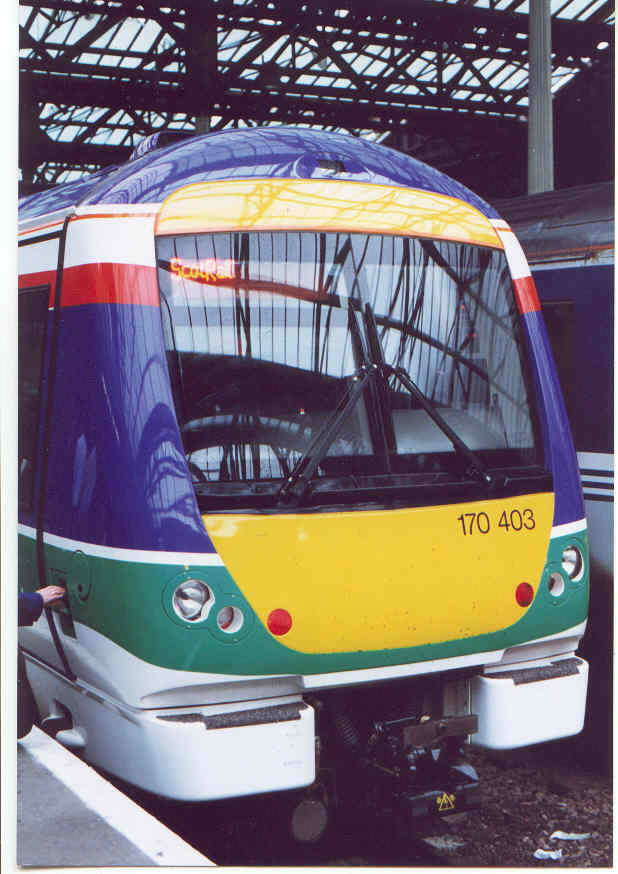 The role of technology and energy as defined in this mission is quite broad,
so many different areas of work are of potential interest in the long run.
At present, the Institute is focused on three areas, as a reflection of
the director's background:
The role of technology and energy as defined in this mission is quite broad,
so many different areas of work are of potential interest in the long run.
At present, the Institute is focused on three areas, as a reflection of
the director's background:
-
Sustainable transportation:
especially public transportation, non-motorized (bicycles, pedestrians),
and sustainable freight transportation.
-
Industrial (sometimes called corporate) environmental management:
how businesses, especially those in some type of manufacturing or distribution
activity, can play their part in the creation of a sustainable technology
and energy system. (Note that this is different from the natural
resource or botanical perspective on environmental management, which usually
deals with managing a natural habitat, rather than a business.)
-
Alternative energy: systems which use renewable energy sources
(solar, wind, hydropower), or which are small-scale and distributed in
nature (as opposed to
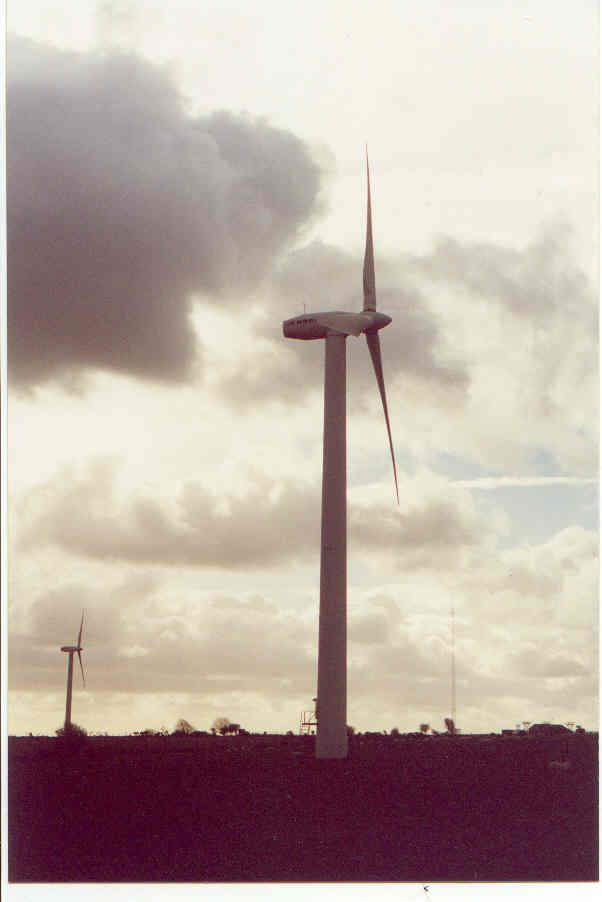 concentrated,
fossil-fuel burning energy sources).
concentrated,
fossil-fuel burning energy sources).
These three areas are all related to eachother: for example, implementing
industrial environmental management is likely to call on elements of alternative
energy and sustainable freight transportation.
Back to Sustainable Technology
and Energy Institute Homepage
Sustainable Technology and Energy
Institute
Current Projects and Interests
The Institute is currently active in the following areas, either carrying
out funded work, writing for publication, or seeking new funding:
-
Long-term industrial environmental management strategy: Drawing
up a blueprint for a successful transition to sustainability in industry.
This project builds on existing corporate environmental management practice
(including Environmental Management Systems, Corporate Environmental Reports,
Environmental Auditing, etc) to propose the concept of Development
for Sustainability, in which businesses thrive today by developing
the technologies and services which we will need for tomorrow.
-
Offsetting transportation impacts with stationary renewables:
Transportation is the fastest growing source of carbon emissions worldwide,
and an inexpensive, carbon-free, motorized technology (other than electric
railways) is not at hand. In the interim, we can offset growing impact
from transportation by investing in renewable energy capacity (solar photovoltaics,
wind power, etc), so that even as carbon emissions from vehicles go up,
emissions from consuming electricity will come down.
-
Long-term sustainability strategy for transportation carbon emissions:
Studying
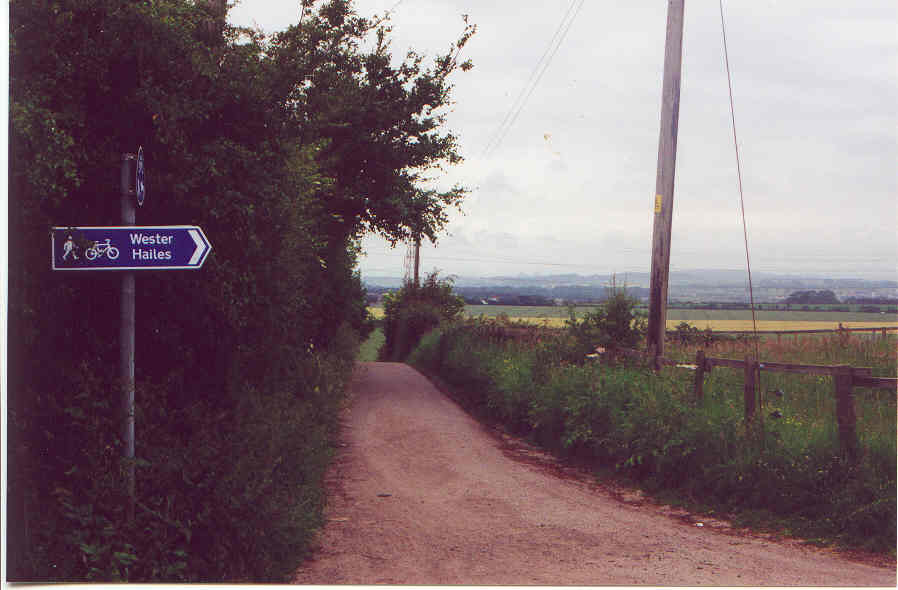 long-term
carbon reduction requirements for the world's transportation system, especially
in the industrialized countries, and creating a proposal for achieving
these requirements by some appropriate combination of measures. This
project emphasizes a mixture of new technologies and also changes in land
use and other behavioral/operational practices.
long-term
carbon reduction requirements for the world's transportation system, especially
in the industrialized countries, and creating a proposal for achieving
these requirements by some appropriate combination of measures. This
project emphasizes a mixture of new technologies and also changes in land
use and other behavioral/operational practices.
-
Green electronic commerce: E-commerce and e-business, in
which consumers make purchases from the web in lieu of traveling to the
physical location of a product, is growing rapidly. This change could
potentially eliminate a large number of passenger trips and related pollution
-- but not if it isn't planned and carried out with this goal in mind.
The goal here is to identify how e-commerce can be implemented so as to
help the environment, and then get these ideas out to the manufacturers
and retailers.
-
Green building. New materials, techniques, and design principles,
used in both residential and commercial buildings, are improving the efficiency
and reducing the environmental impact of the houses in which we live and
work. The institute is currently accumulately information and experience
in this area, compiled elsewhere in this site in a list
of examples and vendors. The Ecovillage
at Ithaca provides an incubator and test case for many of these concepts.
For more information about any of these projects, please
send email to francisvanek@yahoo.com.
Back to Sustainable Technology
and Energy Institute Homepage
Sustainable Technology and Energy
Institute
Recent Publications
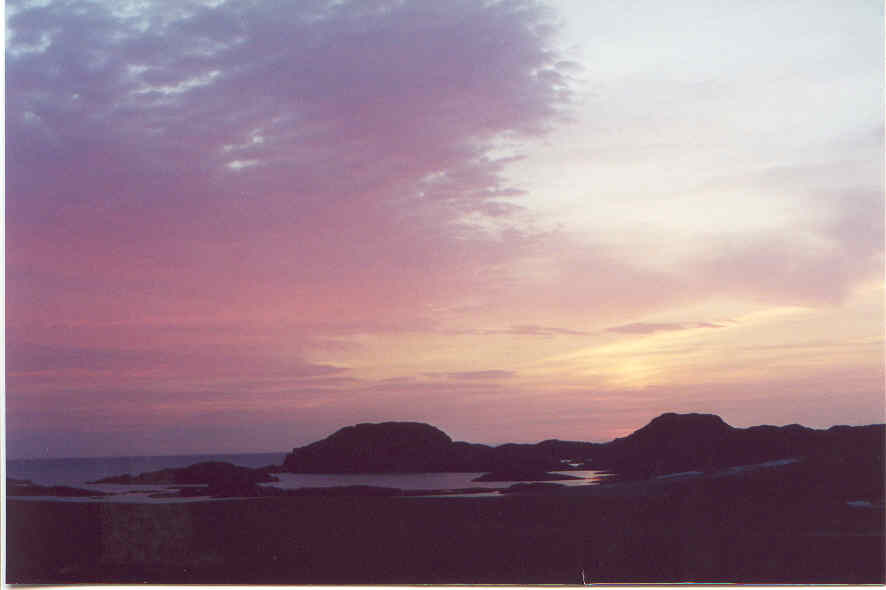 The
following papers are available from the Institute, organized by topic,
in the following order:
The
following papers are available from the Institute, organized by topic,
in the following order:
-
Sustainable freight transportation
-
Non-motorized transportation
-
Public transportation
-
Environmental management
Where no link or mailing address is given, these can be obtained
electronically as MS Word attachments by sending email to francisvanek@yahoo.com.
Sustainable freight transportation
Francis Vanek; "Growth of Exports from Developing Countries: Implications
for Freight Trends and Ecological Impact"; Futures, forthcoming, 2001.
Published by Elsevier.
Francis Vanek; "Analysis of the Potential for Spatial Redistribution
of Freight Using Mathematical Programming", European Journal of Operational
Research, forthcoming, 2001. Published by Elsevier.
*A previous draft of this paper also available from
Heriot-Watt University School of Management as "Discussion Paper in Management
2000-S1." Write to "S.O.M. Discussion Paper Series, School of Management,
Heriot-Watt University, Edinburgh EH14 4AS, United Kingdom", including
author and title as well as paper number.
Francis Vanek; "Sustainably Distributed? An Environmental Critique of
the UK’s Sustainable Distribution Policy." World Transport Policy
and Practice, Vol.6 No.2., 2000. Available on-line from Ecoplan.
Francis Vanek and Edward Morlok; "Reducing US Freight Energy Use Through
Commodity Based Analysis: Justification and Implementation." Transportation
Research Part D, Vol.5 No.1 pp. 11-29, 2000. Published by Elsevier.
Francis Vanek; "The Transportation-Production Tradeoff in Regional Environmental
Impact of Industrial Systems: a Case Study in the Paper Sector"; Environment
and Planning A, Vol.32, pp.817-832, 2000. Published by Pion.
Francis Vanek and James Campbell, "UK Road Freight Energy Use by Product:
Trends and Analysis from 1985 to 1995"; Transport Policy, Vol.6, pp. 237-246,
1999. Published by Elsevier.
*A previous draft of this paper also available from
Heriot-Watt University School of Management as "Discussion Paper in Logistics
1999-L1." Write to "S.O.M. Discussion Paper Series, School of Management,
Heriot-Watt University, Edinburgh EH14 4AS, United Kingdom", including
author and title as well as paper number.
Francis Vanek and Edward Morlok; "Freight Energy Use Disaggregated by
Commodity: Comparisons and Discussion"; Transportation Research Record
1641 pp.3-8 (National Academy of Sciences Press, Washington DC), 1998.
Published by Elsevier.
Francis Vanek; "Reducing Freight in Agriculture:
a test case using the shipment of fruits and vegetables in the US". Personal
working paper, 1995.
Non-motorized transportation
Francis Vanek and Steven Spindler; "Community Cycling Accessibility
Initiative: Enhancing Cycling to Reduce Auto Dependency." International
Association of Traffic and Safety Sciences Research, Vol.23 No.2, pp. 36-42,
1999. Published by IATSS.
Francis Vanek; "Bicycle Improvements: ways of
enhancing nonrecreational cycling".
Personal working paper, 1994.
Public transportation
Edward Morlok, Eric Bruun, Francis Vanek, and Keith Campbell; "The Advanced
Minibus Concept: a New ITS-based Service for Low-Density Markets"; technical
report for US Department of Transportation, May 1997.
Environmental management
Francis Vanek; "The Sector-Stream Matrix: Introducing a New Framework
for the Analysis of Environmental Performance"; Sustainable Development,
forthcoming, 2002.
Francis Vanek; "A Systems Analytic Approach to Sustainable Development";
Conference paper presented at the 1999 International Sustainable Development
Research Conference, Leeds, U.K., March 1999.
Note: regarding copyright laws, it is my understanding
that for papers accepted to journals, I can send individual copies electronically
to colleagues, but that I cannot put such papers on the web for download.
It may be therefore worthwhile to find the paper directly at the publishers
website. --FV
Back to Sustainable Technology
and Energy Institute Homepage
Sustainable Technology and Energy
Institute
About the Director
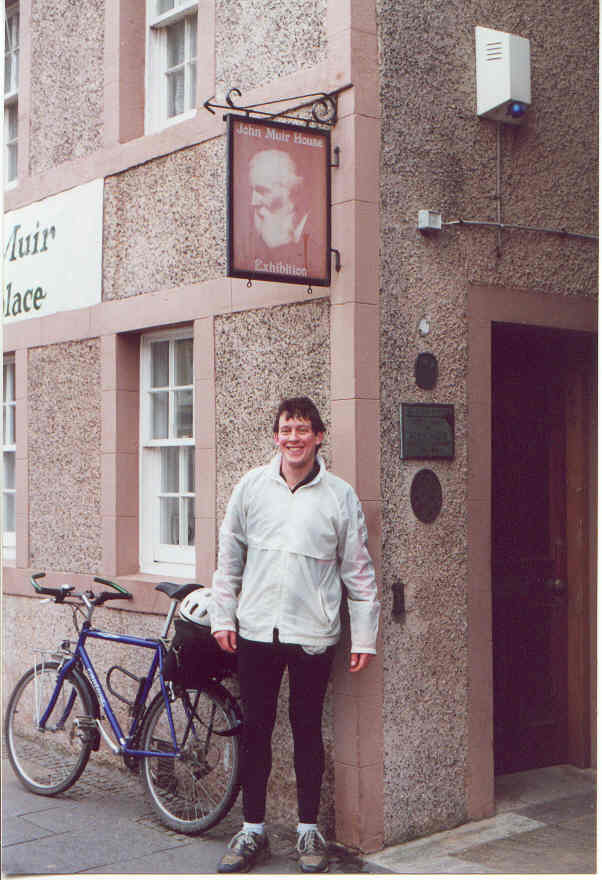 The director of the Institute, Francis Vanek, received bachelors
degrees in Mechanical Engineering and Asian Studies from Cornell University
in 1991. After working for Nissan Motors and also as a technical
translator and interpreter for two years, he returned to graduate studies
at the University of Pennsylvania, earning a Masters degree in Systems
Engineering in 1995 and a PhD in the same in 1998. His doctoral research
focused on the environmental impact of freight transport and logistics
activities, using the breakdown of freight flows by commodity and by spatial
pattern in the United States. Between 1998 and 2000 he taught at
Heriot-Watt University in Edinburgh, Scotland, focusing on classes in freight
transportation and environmental issues in transport, and also developing
a new class in Environmental Management, an experience which helped shape
the direction of the Institute.
The director of the Institute, Francis Vanek, received bachelors
degrees in Mechanical Engineering and Asian Studies from Cornell University
in 1991. After working for Nissan Motors and also as a technical
translator and interpreter for two years, he returned to graduate studies
at the University of Pennsylvania, earning a Masters degree in Systems
Engineering in 1995 and a PhD in the same in 1998. His doctoral research
focused on the environmental impact of freight transport and logistics
activities, using the breakdown of freight flows by commodity and by spatial
pattern in the United States. Between 1998 and 2000 he taught at
Heriot-Watt University in Edinburgh, Scotland, focusing on classes in freight
transportation and environmental issues in transport, and also developing
a new class in Environmental Management, an experience which helped shape
the direction of the Institute.
Francis has maintained since his undergraduate days a
long-term interest in alternative energy and appropriate technology, and
has worked in both a paid and volunteer capacity on numerous projects in
America and Europe, as well as in developing countries. His hobbies
include bicycling (which also happens to be his year-round favorite mode
of transportation), cooking, and world travel. He and his partner,
Catherine Johnson, have two children, Ray age 5 and Mira age 1.
Back to Sustainable Technology
and Energy Institute Homepage
Sustainable Technology and Energy
Institute
Sister Organization: the S.T.E.V.E.N. Foundation
The acronym S.T.E.V.E.N. stands for "Sustainable Technology and Energy
for Vital Economic Needs." Founded in 1986, this organization develops
and disseminates low-cost Appropriate Technology (AT) to capture hand and
renewable energy (especially solar and hydro), with a particular focus
on developing countries. These two organizations have complementary
roles: while S.T.E.V.E.N. continues to focus on appropriate technology
designs, the Institute expands this interest in sustainable technology
design into the areas of policy research, outreach, and advocacy, focusing
not only on renewable energy but also sustainable transportation and industry.
To the S.T.E.V.E.N. Foundation Homepage...
Back to Sustainable Technology
and Energy Institute Homepage
Sustainable Technology and Energy
Institute
Other links of interest
Back to Sustainable
Technology and Energy Institute Homepage
Last updated on September 15, 2001. Photographs
on this page, in order from top: shipping container loading, Port of Aberdeen;
Scotrail train, Edinburgh Waverley Station; electric windfarm, near Haverfordwest,
Wales; bicycle path, outside of Edinburgh; sunset over Isle of Iona, Scotland;
director outside of John Muir Birthplace, Dunbar, Scotland. (All
taken by FV) Exclusive use of photographs from Britain is for lack
of appropriate pictures from USA at present; the director is on the lookout
for items of local interest, and will update as these become available!
 The Institute
sees "Sustainable-Technology-Energy" as the key remaining component in
the campaign to save the global natural environment. We have already
created a movement to protect wildlife habitat and other wild lands; we
have created a legal framework for enacting and enforcing environmental
laws, including a framework for international cooperation; and we have
developed a range of end-of-pipe technologies for containing and controlling
pollution. Without a fundamental shift in how our technology
in its essence interacts with nature, though, these other measures will
not be able to "turn the corner" on environmental degradation. They
will be continually in retreat, cleaning up one mess at the same time that
another four or five are created. It is especially important to understand
the difference between end-of-pipe technology and sustainable technology:
sustainable means more than catching pollution before it escapes, it means
using mainly renewable inputs (sunlight, wind, plants and trees, etc) and
producing only outputs that can be integrated back into nature, or used
in another technology.
The Institute
sees "Sustainable-Technology-Energy" as the key remaining component in
the campaign to save the global natural environment. We have already
created a movement to protect wildlife habitat and other wild lands; we
have created a legal framework for enacting and enforcing environmental
laws, including a framework for international cooperation; and we have
developed a range of end-of-pipe technologies for containing and controlling
pollution. Without a fundamental shift in how our technology
in its essence interacts with nature, though, these other measures will
not be able to "turn the corner" on environmental degradation. They
will be continually in retreat, cleaning up one mess at the same time that
another four or five are created. It is especially important to understand
the difference between end-of-pipe technology and sustainable technology:
sustainable means more than catching pollution before it escapes, it means
using mainly renewable inputs (sunlight, wind, plants and trees, etc) and
producing only outputs that can be integrated back into nature, or used
in another technology.
 The role of technology and energy as defined in this mission is quite broad,
so many different areas of work are of potential interest in the long run.
At present, the Institute is focused on three areas, as a reflection of
the director's background:
The role of technology and energy as defined in this mission is quite broad,
so many different areas of work are of potential interest in the long run.
At present, the Institute is focused on three areas, as a reflection of
the director's background:
 concentrated,
fossil-fuel burning energy sources).
concentrated,
fossil-fuel burning energy sources). long-term
carbon reduction requirements for the world's transportation system, especially
in the industrialized countries, and creating a proposal for achieving
these requirements by some appropriate combination of measures. This
project emphasizes a mixture of new technologies and also changes in land
use and other behavioral/operational practices.
long-term
carbon reduction requirements for the world's transportation system, especially
in the industrialized countries, and creating a proposal for achieving
these requirements by some appropriate combination of measures. This
project emphasizes a mixture of new technologies and also changes in land
use and other behavioral/operational practices. The
following papers are available from the Institute, organized by topic,
in the following order:
The
following papers are available from the Institute, organized by topic,
in the following order:
 The director of the Institute, Francis Vanek, received bachelors
degrees in Mechanical Engineering and Asian Studies from Cornell University
in 1991. After working for Nissan Motors and also as a technical
translator and interpreter for two years, he returned to graduate studies
at the University of Pennsylvania, earning a Masters degree in Systems
Engineering in 1995 and a PhD in the same in 1998. His doctoral research
focused on the environmental impact of freight transport and logistics
activities, using the breakdown of freight flows by commodity and by spatial
pattern in the United States. Between 1998 and 2000 he taught at
Heriot-Watt University in Edinburgh, Scotland, focusing on classes in freight
transportation and environmental issues in transport, and also developing
a new class in Environmental Management, an experience which helped shape
the direction of the Institute.
The director of the Institute, Francis Vanek, received bachelors
degrees in Mechanical Engineering and Asian Studies from Cornell University
in 1991. After working for Nissan Motors and also as a technical
translator and interpreter for two years, he returned to graduate studies
at the University of Pennsylvania, earning a Masters degree in Systems
Engineering in 1995 and a PhD in the same in 1998. His doctoral research
focused on the environmental impact of freight transport and logistics
activities, using the breakdown of freight flows by commodity and by spatial
pattern in the United States. Between 1998 and 2000 he taught at
Heriot-Watt University in Edinburgh, Scotland, focusing on classes in freight
transportation and environmental issues in transport, and also developing
a new class in Environmental Management, an experience which helped shape
the direction of the Institute.